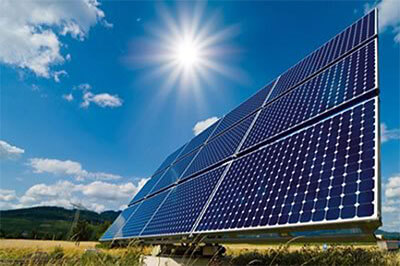Solar lights have become increasingly popular as a cost-effective and sustainable lighting solution for both indoor and outdoor spaces. However, one question that often arises is how long these lights can stay illuminated at night. The answer depends on various factors, including the type of solar light, the amount of sunlight they receive, the type of batteries they use, and the climate in which they are used.

Factors Affecting Solar Light Duration
Solar lights typically stay on for 6 to 10 hours on a full charge. However, this duration can vary depending on several factors. The type of solar light is crucial in determining the length of time it can operate during the night. There are two main categories of solar lights: indoor and outdoor. Each category has different battery technologies, capacity, operation principles, and types of light sources such as LED or halogen.
Read more: Can I install LED strip lights on any type of retractable RV awning?
Duration of Indoor Solar Lights' Illumination During Nighttime
Different types of indoor solar lights have varying durations of illumination at night. Here's a summary of their nighttime operation:
- Solar Shed Lights: 6-8 hours
- Solar Desk Lights: 8-10 hours
Duration of Outdoor Solar Lights' Illumination During Nighttime
Outdoor solar lights also have different operating durations at night. Here's a summary of their nighttime operation:
- Solar String Lights: 6-8 hours
- Solar Deck Lights: 10-12 hours
- Solar Parking Lot Lights: 10-15 hours
- Solar Sign Lights: 8-10 hours
- Solar Traffic Light: 24 hours
- Solar Emergency Light: 8-10 hours
- Solar Camping Light: 10-15 hours
Duration of Outdoor Solar Garden Lights' Illumination During Nighttime
Under the classification of outdoor solar garden lights, there are 20 different types, each with its own designated runtime at night. Here's a list of their durations:
- Solar Spot Lights: 6-9 hours
- Solar Flood Lights: 8-10 hours
- Solar Post Lights: 10-12 hours
- Solar Lanterns: 6-10 hours
- Solar Fence Lights: 8-10 hours
- Solar Wall Lights: 8-12 hours
- Solar Driveway Lights: 8-10 hours
- Solar Walkway Lights: 10-12 hours
- Solar Porch Lights: 10-12 hours
- Solar Step Lights: 6-10 hours
- Solar Candles: 6-8 hours
- Solar Pond Lights: 8-10 hours
- Solar Umbrella Lights: 6-10 hours
- Solar Lawn Lights: 8-12 hours
- Solar Street Lights: 10-12 hours
Read more: Crafting Superior LED Strip Lights - A Comprehensive Manufacturing Process
How to Make Solar Lights Stay On Longer?
If you want to extend the duration of your solar lights at night, you can take the following steps:
- Use high-capacity rechargeable batteries: A larger capacity battery will keep the light on for a longer period.
- Optimize sunlight exposure: Place the solar light in an area that receives direct sunlight for maximum charging.
- Clean solar panels regularly: Regularly cleaning the solar panels will ensure optimal charge absorption.
- Choose solar lights with larger panels: A larger solar panel will increase the charge rate and extend the illumination time.
- Opt for efficient LED lights: LEDs are more energy-efficient and have a longer lifespan compared to traditional bulbs.
Frequently Asked Questions
How long does it take to charge a solar light?
The charging time for solar lights typically ranges from 6 to 12 hours, depending on the type of solar light.
Read more: Creating Illumination - Cutting, Connecting, and Installing LED Strips
Which solar lights stay on all night?
Here are some solar lights known for their ability to stay illuminated throughout the night:
- Lemontec Solar Lights
- EZ Solar Pathway Lights
- SolarGlow Garden Lights
- URPOWER Solar Lights
- Aootek Solar Lights
Are solar lights meant to be turned off at night?
No, solar lights are designed to automatically turn themselves off when the surrounding area is illuminated by natural sunlight.
Solar lights offer a convenient and environmentally friendly way to illuminate your surroundings. By understanding the factors that affect their operating duration and implementing a few tips, you can make the most out of your solar lighting system.
